Research News

Vaughn Schmutz, Ph.D., associate professor of sociology, has been named a 2024-25 research fellow for the Strategic National Arts Alumni Project (SNAAP). His research will utilize SNAAP data to examine the value of an arts education and the creative economy, with the topic of “Perceptions of Diversity, Social Justice, and Belonging Among Arts Graduates.” Schmutz is […]
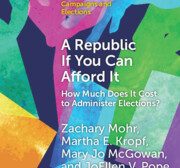
“Election administration is easy, right? It’s just counting ballots.” UNC Charlotte researchers from the College of Humanities & Earth and Social Sciences have just authored a new book entitled “A Republic If You Can Afford It: How Much Does It Cost to Administer Elections?,” which was published by the Cambridge University Press in the Elements […]

Researchers from UNC Charlotte are collecting data to learn how residents of Western North Carolina were impacted in their ability to vote and confidence in the November general election after Hurricane Helene devastated the region in late September. Professors of Political Science and Public Administration Martha Kropf, Ph.D., and Regina Branton, Ph.D., the Marshall A. […]
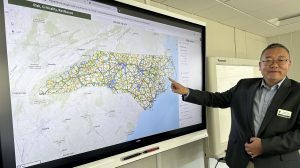
Amid Hurricane Helene’s aftermath, an environmental research and technological powerhouse at UNC Charlotte is providing critical information for planning and rebuilding efforts. Recently unveiled research from the Center for Applied Geographic Information Science (CAGIS) details the now all-too-familiar threats of flooding and landslides in the North Carolina mountains, with particular emphasis on the increasing risks […]
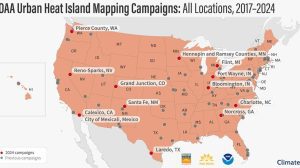
This summer, the Charlotte Heat Mappers, a coalition of community organizations, nonprofits and government entities led by UNC Charlotte’s Department of Earth, Environmental and Geographical Sciences, will oversee a community science campaign to map variations in urban heat across the city. Charlotte is one of 14 U.S. communities and four international cities selected by the […]
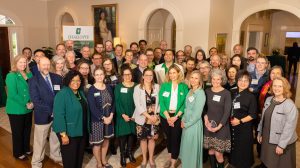
UNC Charlotte is committed to celebrating success in many different forms, and is establishing and expanding the various ways we recognize faculty. Alongside teaching excellence, exemplary research and notable publications, they have recently established recognition for large research grant funding. On Wednesday, March 27, “Charlotte’s Million Dollar Research Circle” reception recognized faculty who have received a large grant totalling at least […]
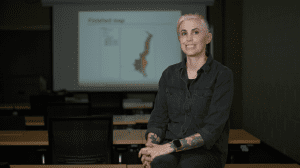
Shannon Reid, Ph.D., associate professor of Criminal Justice and Criminology and affiliate faculty with the School of Data Science, works at the intersection of technology and public safety with projects that focus on reducing crime, while increasing community buy-in and trust in AI. She serves as chief executive officer of Chimeras, which got its start from an NSF […]

UNC Charlotte Chancellor’s Professor Roslyn Arlin Mickelson is one of just 18 exceptional education leaders and scholars elected as members of the National Academy of Education for valuable contributions to education research and policy development. This diverse group of leaders and scholars is at the forefront of those who are improving the lives of students in the United States and abroad.
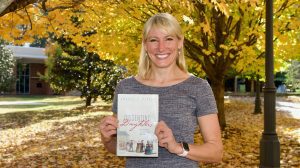
A book by Amanda Pipkin, History Department chair and professor, has received the Society for the Study of Early Modern Women and Gender’s national 2022 Best Book Award. Through compelling, detailed case studies of women, the researcher reveals the vital contributions women made to the spread and practice of the Reformed faith.

Earning probation or parole may be challenging, but having it revoked is surprisingly easy – clogging prison systems and derailing an individual’s ability to build a productive life. Nationwide, one in four state prison admissions in 2017 were a result of a technical violation by someone on supervised release. With support from the U.S. Department of Justice (DOJ), UNC Charlotte professor Shelley Johnson and her colleagues are building and piloting a novel approach they hope will break the cycle of recidivism and lead to a new national model for parole and probation practices.

To support the first translation into English of an extensive 12th-century Persian poem that presents a Sufi spiritual journey, UNC Charlotte’s William Sherman has received funding from the National Endowment for the Humanities (NEH). The $48,371 award will enable continued work on a critical collaborative translation of a poem called the “Musibat-Namah,” or “The Divine Tragedy,” by Sufi poet Farid al-Din ‘Attar.

UNC Charlotte researchers and the Gaston County Department of Health and Human Services have created the Gaston Water Map, a website with tools that map known groundwater quality in the county. The site also provides resources on best practices households can use to understand their well water quality. The researchers have mailed more than 8,000 postcards to residents, encouraging them to locate their addresses on the interactive maps on the website.
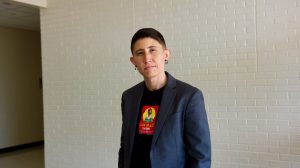

An article by UNC Charlotte researcher Andrea J. Pitts and colleagues published in the world’s leading medical journal details how competing interests in academic medicine can harm patient care and perpetuate structural racism. Published in early June in the New England Journal of Medicine, the article explores the tensions found in academic residency clinics, as doctors deal with dual loyalties to their patients and their academic institutions.


UNC Charlotte Professor of History Mark Wilson is one of 28 exceptional scholars, journalists and authors chosen as members of the 2022 Class of Andrew Carnegie Fellows. Wilson will receive a $200,000 stipend to conduct significant research and writing.


UNC Charlotte Professor of English and American Studies Program Director Jeffrey Leak and colleagues have received a new American Association of University Administrators (AAUA) award for a special issue of the Journal of Higher Education Management that focuses on the twin pandemics of COVID-19 and racial justice and equity.



A significant proportion of Gaston County residents get their drinking water from private wells and other unregulated sources, particularly in the county’s northern and western rural communities. Yet, only a small fraction of residents test their water regularly. A UNC Charlotte team will work with residents and county health officials to boost the number of people doing tests regularly and improve the sharing of data, with new state funding to broaden the work.
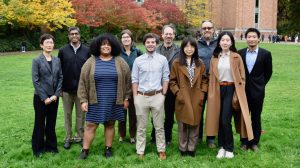

A team including UNC Charlotte urban planning researcher Katherine Idziorek has received a nearly $2 million grant from the National Science Foundation to advance research on how urban social and spatial systems can be organized to be more resilient and efficient.


UNC Charlotte health psychology doctoral student Jan Mooney is expanding her research in maternal health, with support from a National Institutes of Health (NIH) Intramural Research Training Award. The fellowship from the Eunice Kennedy Shriver National Institute of Child Health and Human Development will allow Mooney to work closely with NIH scientists.